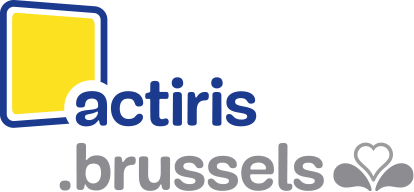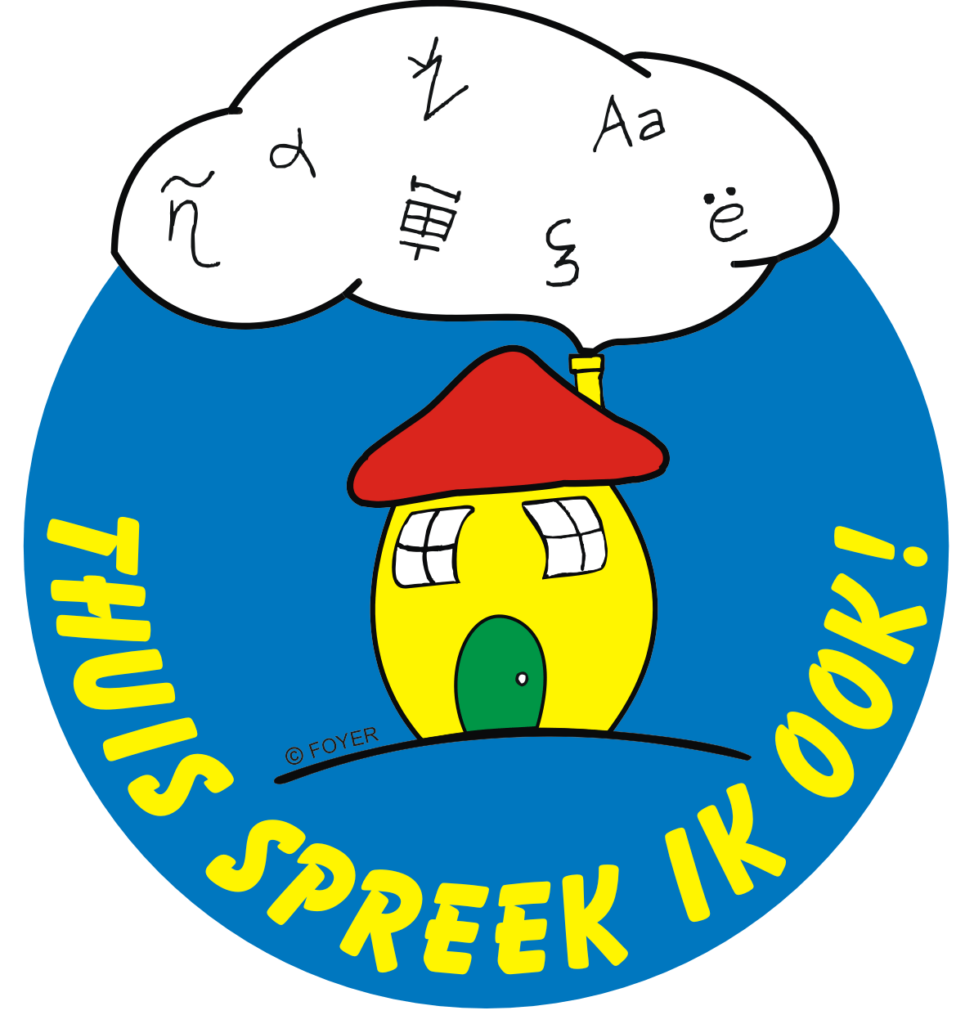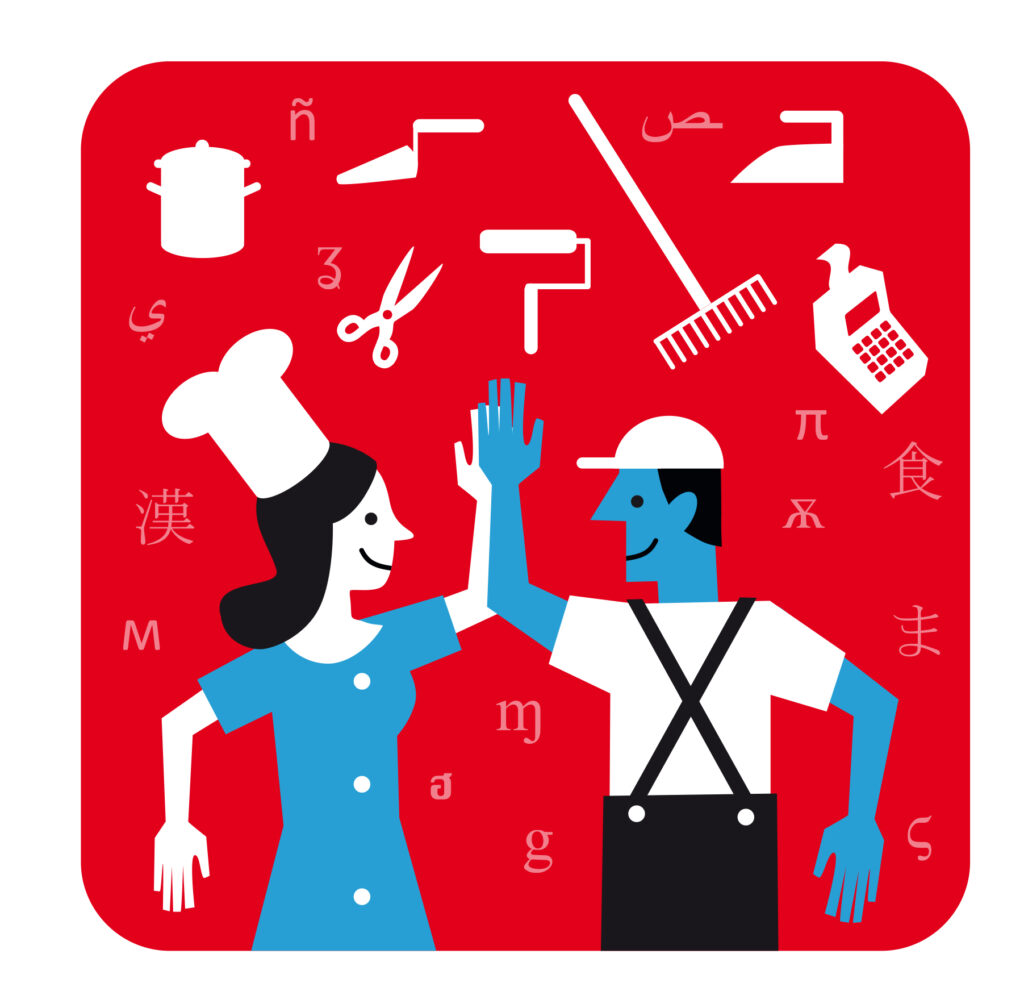PIM (Partners in multilingualism)

Since the beginning of the 1980s, Foyer has built up broad expertise in multilingual parenting, dealing with home languages and the learning of integration language(s). PIM (Partners in Multilingualism) is the team that pools and further develops expertise around this topic. We focus on supporting the family language policy and the cooperation between the school, family and other partners involves. With our offer we are present at crucial moments of growing up multilingual such as at the start of family expansion, the start of schoo, the transition from primary to secondary. Our projects are centred on Brussels but often grow from international cooperation and aim to build a bridge between research and practice.
| For more informations or questions about a specific project, contact us at pim@foyer.be. You can also indicate that you wish to receive the newsletter through here. |

Language analysis and advice
PIM supports multilingual families and children. The mother tongue analysis and language advice component is always carried out in collaboration with schools, CLB, social workers and parenting support workers in Brussels. Parents cannot therefore submit an application directly, but are always involved via these partners.
Through our work, we aim to:
- Better understand children’s language profiles by mapping their home language and language exposure.
- Strengthen or adjust parents’ language exposure when it may be a hindrance to their child’s language learning process.
- Support parents from the outset (including pre-school) in their language choices and approach.
! This service is only available for (parents of) kids who go to a Dutch speaking school !
Information sessions for parents
We provide a wide range of sessions in Brussels, strengthening parents in their role in the multilingual education of their children. Specific themes we include include:
- Applying basic principles around multilingual parenting to your own family context;
- Addressing well-being in multilingual parenting;
- The home/school transition (ties in with the ‘warm transition’ theme);
- Strengthening language provision at home and the importance of reading aloud and storytelling
Practical details
- To apply: Dutch-speaking organisations and schools can request these sessions.
- Target audience: parents with children up to 12 years of age who follow Dutch speaking education.
- More information: pim@foyer.be
- An overview of the sessions can be found in this leaflet. (only available in Dutch)
- Every trimester we organise a webinar for young parents in three languages. You can pass this leaflet on to parents who have questions about their language choices and offerings.
! The sessions can be given in English or French, but the organisation or school must be dutch-speaking !
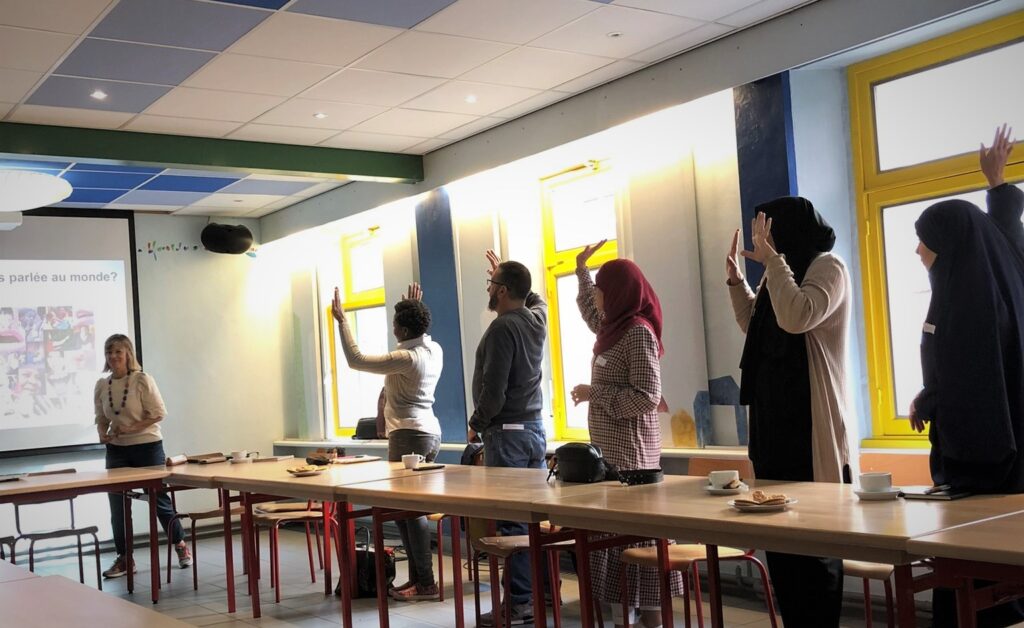
Screen time
We encourage parents to take a critical look at their children’s screen time. We also provide suggestions for responsible use with:
- a list of audio books in Dutch and other languages.
- a list of films for toddlers in Dutch. For children going to primary school, you have a large choice of films in Dutch.
A number of sessions in the schools are organised with the support of VGC. There is also a collaboration with Huis Van Het Kind Brussel.


Planting languages – seeds of succes
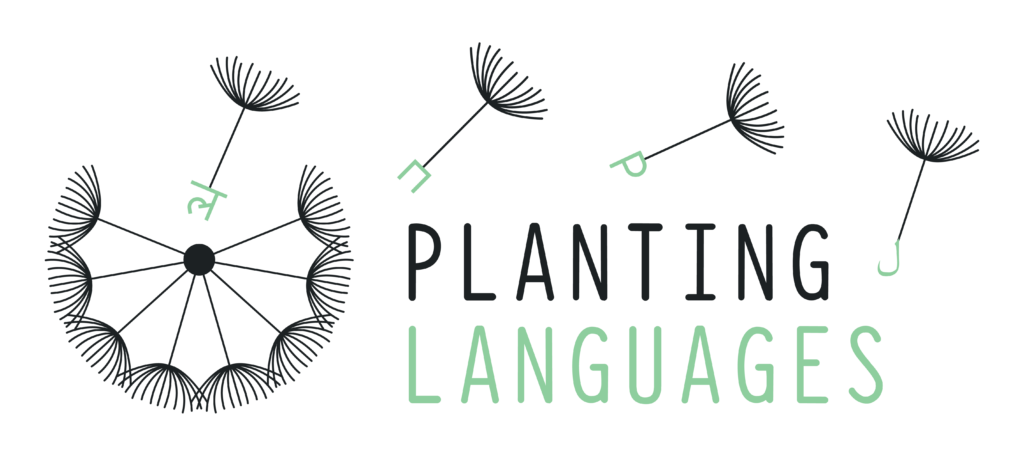
The second European project on multilingualism, coordinated by Foyer, was completed at the end of 2021 and aims to support parents in multilingual parenting. It resulted in accessible materials that support parents in making up a strong plan and a stimulating approach to their multilingual education.
Realisations: www.plantinglanguages.com
Specific Goals
- Parents gradually reflect on language choices in their family;
- Parents and their social network engage together to create a stimulating language environment;
- Parents can adjust their family language policy;
- Professionals can guide parents through this process.
Target groups
- Future multilingual parents and multilingual parents with young children;
- Specific attention for parents with a migration background and refugee families;
- Professionals who work with these parents or their children;
How do we support multilingual families?
- Parents will find information and materials in five languages on the website;
- Parents can follow a group session or request personal advice;
- Professionals can get started with the parents themselves with the help of the manual;
- Professionals can request training;
PIM@Home
A core theme of PIM is the support of parents in the multilingual education of their children. We provide advice and training for parents and professionals with a focus on both the home language and the school language.
PIM@home focuses on strengthening the various home languages and was realized with the support of Sven Gatz, minister responsible for the promotion of multilingualism.

The core of the project consists of 10 short videos about language support in the home language. The videos, originally in Dutch, have been duplicated and recorded in 8 different languages: Classical Arabic, Moroccan Arabic, English, French, Romanian, Spanish, Turkish and Urdu. The material can be used preventively. In addition, it can be used specifically when children are weaker for language and when a stronger language stimulation at home is a part of the solution-focused approach.
There is a supporting manual in Dutch that gives professionals ideas to get started with the parents themselves. Brussels schools and organizations can request a collaboration (pim@foyer.be).
SALTO
SALTO is a project for the languages at home and at school spoken by pupils in the first and second years of primary school.
Foyer has a team of trained parents who can provide language-stimulating activities in their home language at school. Schools, day-care centres, organisations and libraries can apply to Foyer to make use of this team.
In our team, we have trained parents who can give reading aloud and activities in the following languages:
- Moroccan Arabic
- Tamazight
- Classical Arabic
- Turkish
- Bulgarian
- English
- Spanish
- Italian
- Portuguese
- Tamil
- Bengali
- Chinese
- German
- French
- Dutch
- Armenian
Activities are available in 12 languages on the website.
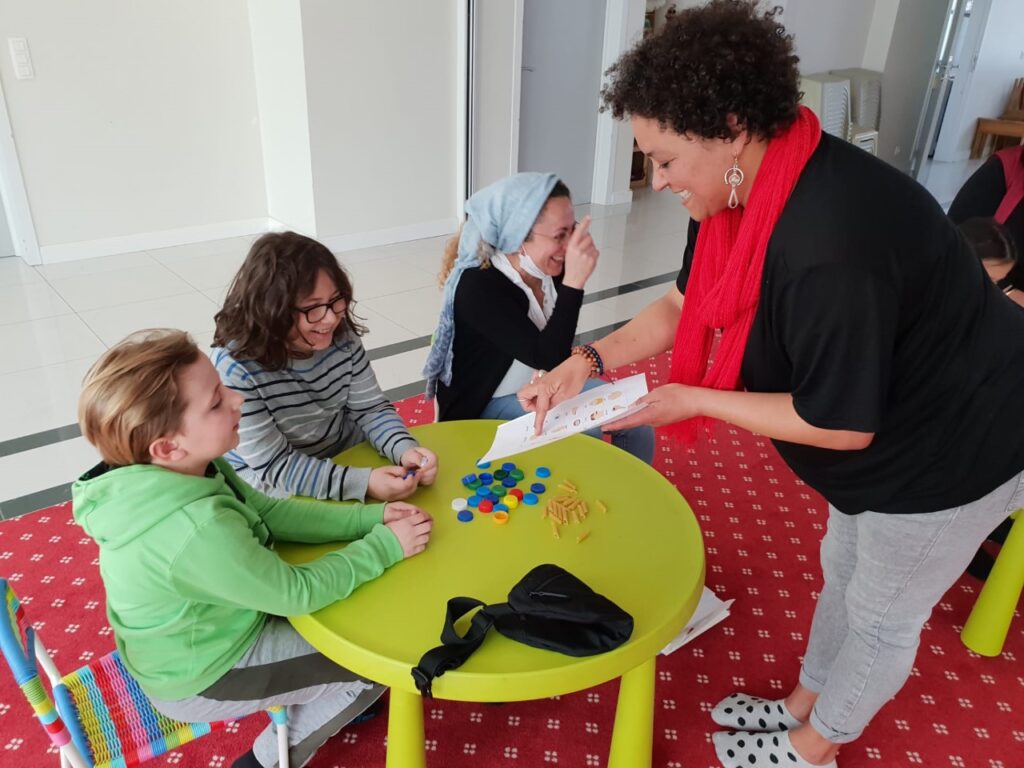
The aims of SALTO are:
- Children and their parents experience their home language together in a different way;
- Language sensitisation: children and their parents experience linguistic diversity;
- Strengthen the relationship between parents and teachers.
Saltino is a project on reading aloud and storytelling in the home language for young children (3 months to 2.5). The project continues in nurseries.
Iedereen Vertelt (Everyone tells a story)
Iedereen vertelt is a unique collection of 98 read-aloud videos in 21 different languages, narrated by storytellers who bring their own native languages to life. The platform is ideal for schools, libraries, Children’s Centres and all organisations that want to promote language diversity and inclusion.
By hearing stories in their home language, children gain something very valuable: recognition. They feel that their language is welcome, not only at home, but also at school, in the library or at childcare. This makes their language, identity and emotions visible and audible.
Stories in the home language are a powerful tool for:
- strengthening a positive multilingual identity;
- stimulating language enjoyment in children and parents;
- increasing parental involvement in reading aloud;
- enabling language awareness in the classroom or library, even in languages that no one knows, purely to stimulate openness and curiosity.
Iedereen vertelt makes all this possible in one user-friendly, closed platform. The videos are only accessible to registered users, for copyright reasons. Visit https://kamishibai.foyer.brussels/ and request access to the platform!
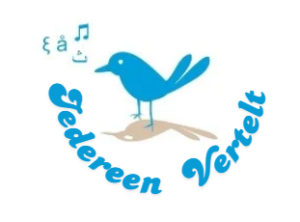
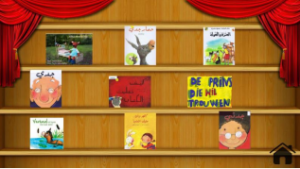
Lutu Lingua
Lutu Lingua is a game that encourages young people to reflect on their multilingual identity. In childhood, language choices were often determined by parents. As they move on to secondary education, the personal search for identity grows. But what expectations do teenagers themselves have regarding their language skills? How can adolescents take control of the learning process, and how do they see themselves in the future? Reflection is made on both Dutch and the home language(s). The game can be played in a school context, within the youth sector or in a general educational setting.
Lutu means chaos in Batak Simalungun. In this game, Lutu refers to the chaos that often takes place in the mind of the (budding) adolescent. Lingua stands for the languages that are central to this game.
You can find all the information to buy the game here
Liba Lingua
A strong start at school for multilingual children.

Does Lingua also remind you of language? That’s right! Languages are central in this game.
Liba is the Hungarian word for ‘goose’. Our game Liba Lingua is indeed a gooseboard game, but not just any…
Liba Lingua wants to help parents reflect on their child’s multilingual education at the start of school. Parents play the game together with a teacher, giving them the opportunity to start their collaboration in a fun way. The game is aimed at parents of children in Dutch-speaking schools.
With Liba Lingua we create a warm transition between home and school with three important messages:

- Home languages are important and must continue to grow.
- The enthusiasm of the parents is an important driving force in learning Dutch.
- Monitoring language development requires good communication between parents and school.
Pratical details
- The game costs 35 euros + shipping costs.
- Would you like to order or ask our support to get started with this game? Email to pim@foyer.be. You will also find the information in this brochure (in Dutch) and this video will give you a first impression.
- After playing the game you can give the parents a reminder. You can find these in different languages
Liba Lingua was developed with the financial support of Habilnet.
In November 2024, our colleagues from PIM receides the European Language Label for Liba Lingua. Epos vzw annually awards this label to innovative projects on languages and linguistic diversity. This is a great recognition for the work of PIM and the game!
TALES@Home

TALES@Home stands for ‘Talking About Language and EmotionS at Home’. The European project TALES@home helps multilingual families create a stimulating environment for language learning and well-being. We developed an app that allows parents and children to map emotions related to language. The strongly visual approach invites reflection and conversation. This digital tool strengthens positive emotions and attitudes within the family in order to contribute to well-being, social cohesion and language skills of all family members. TALES@Home is meant for multilingual families and Professionals working with multilingual adults, children and young people in the context of language learning.

The central theme of well-being, emotions and language is fully in line with HaBilNet’s objectives. Thanks to HaBilNet, this tool was able to get an update in 2022 and is now fully available again.
- Here you can find the tool talesathome
- This manual will help you on your way.
- As an example, here you will find a collection of language stories from refugee families who have started working with the tool.
Educational Material
Our specialist team at Foyer developed a lot of educational material over the years. Below you can find a selection that is always available.

Dat is wat
An interactive series of lessons for the fourth year of primary school..
The central theme is to stimulate their interest in “the form of language” and correct language use. We offer an engaging language activity spread over four lessons, two of which we supervise as workshops in the classroom. Together, we will take your pupils’ language skills to the next level!
Poly-me
Poly-me is an escape game played in teams.
The players move in a closed space. They have to solve a series of puzzles in different languages within a given time to escape to a future destination. During the game, players discover aspects of their multiple identities.

Digital Kamishibai
The digital kamishibai is a collection of 99 videos in which people of Brussels read in their mother tongue. The digital kamishibai contains 25 languages: from Peul, Turkish, Chinese over English to Kinyarwanda. By listening to a story together, the kids discover familiar stories as well as new ones in their own language or in another one. They can see similarities and differences, can hear sounds and words they know or completely don’t know.
At Foyer, you can rent the digital kamishibai for 50 euros a week. The stories are also available for teachers on a closed online platform.
Reservations via pim@foyer.be

Calander 2026
Actif with languages at home
We often work with parents to reinforce the language spoken at home. The home language forms the basis for learning other languages and is important as a connecting language between parents and children.
Our advice covers various topics:
- Reading aloud as a source of learning languages
- Offering language as a game
- Hold conversations
- Learning a new language by going out together
- The importance of contact with others
We created a calendar for parents (A3 format) on which they can mark in couleur when they have put one of the five tips in practice. You can download and print the calendar here (Suggestion: in colour – A3 – recto/verso).
Via this link, you can find the information on the calendar in different languages.
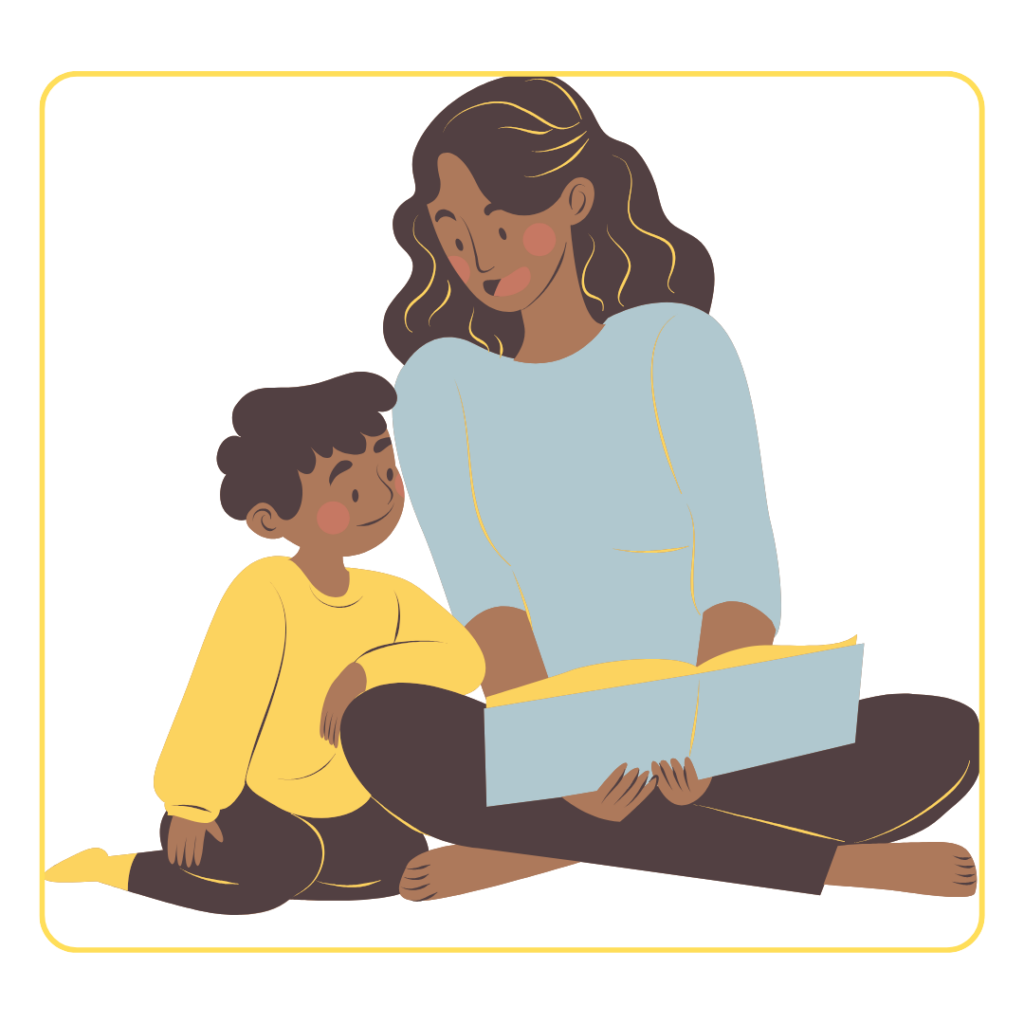

Language + Menu
An extra spoonful of language every day!
When discussing multilingual language development with parents, it is nice to give them a reminder.
This menu can come in handy for this purpose. Our comprehensive ‘meal’ invites parents to give due attention to both the home language and Dutch.
The reference to tasty and nutritious food seems to us an excellent way to emphasise both the fun and the importance of language support. We hang this menu on a small spoon, but we were also suggested to combine it with a cardboard plate painted by the child. So you can get creative with it!
The menu card is A5 size and available in three languages. You can download it here.
At home I aslo speak!
This collection allows secondary school special education type 1 pupils to be introduced to different languages in a positive way, using twenty fully developed lessons.
This material is only available in Dutch!
Extraordinarily linguistic
This bundle contains activities involving the home languages of pupils aged 4 to 12. Sometimes the languages themselves are the focus of the activity and other times aspects of the mother tongue are examined.
this material is only available in Dutch!
Courses for professionals
Click here to see an overview of the training courses we offer.

